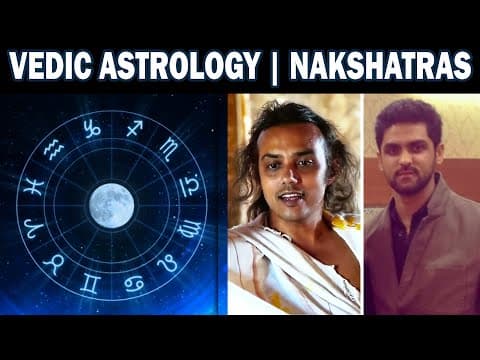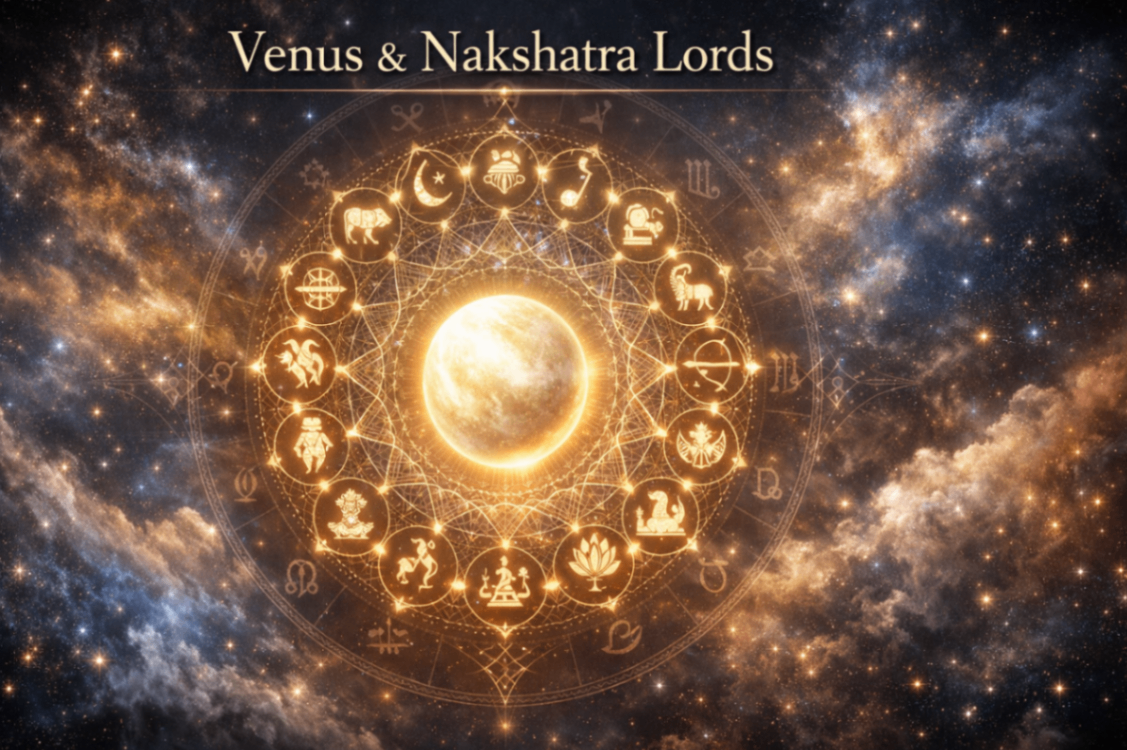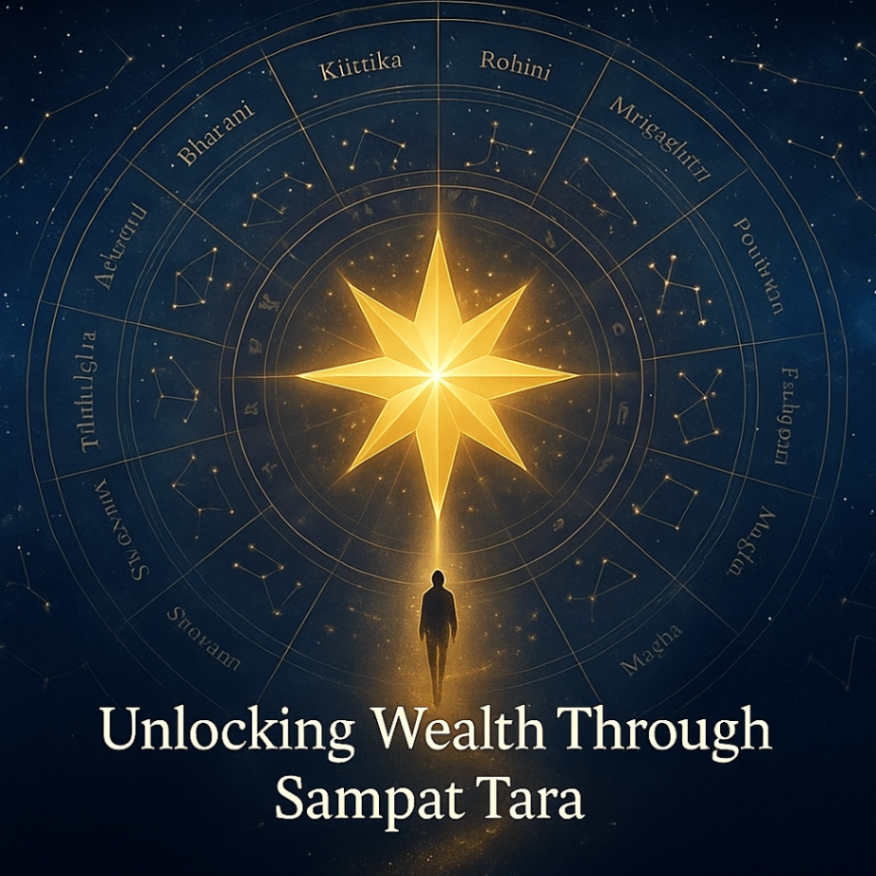Introduction to Vedic Astrology
Vedic Astrology, also known as Jyotish, is an ancient science rooted in the Vedic traditions of India. It is often referred to as the "science of light" but, ironically, it is a field currently shrouded in confusion and misinformation. This article aims to shed light on the true nature of Vedic Astrology, its foundational principles, and the essential elements one must understand to practice it correctly.
The Importance of Nakshatras
Nakshatras, or lunar constellations, play a crucial role in Vedic Astrology. Before the publication of my Nakshatra book in 2003, the use of Nakshatras was not widespread among astrologers. The book introduced the psychological profiles associated with each Nakshatra, providing a map to understanding human psychology through these lunar constellations. This psychological profiling has since become a valuable tool for astrologers, helping individuals understand themselves better.
Predictions and Misuse of Jyotish
While psychological profiling is essential, predictions in Jyotish are technically connected to Nakshatras, sub-lords, and sub-sub-lords. Accurate predictions require a deep understanding of these elements. However, this knowledge should not be easily accessible to everyone, as it can be misused. Vedic Astrology was traditionally learned under the guidance of gurus in a holistic environment, ensuring that the knowledge was used responsibly and ethically.
Modern Challenges in Jyotish
Today, with the advent of the internet and platforms like YouTube, anyone can access information about Jyotish. Unfortunately, this has led to widespread misinformation and confusion. Many people cannot distinguish between accurate information and misinformation due to a lack of proper training. Simplistic and popular notions often overshadow the technical and accurate aspects of Jyotish, turning it into a joke rather than a serious science.
The Limitations of the Rashi Chart
One common mistake in modern Jyotish is the over-reliance on the Rashi chart for predictions. The Rashi chart shows the placement of planets in zodiac signs but does not indicate houses. Accurate predictions require the use of the Bhava chart, which shows the house positions of planets. Without this, predictions based on the Rashi chart alone are often misleading and inaccurate.
The Role of Nakshatras in Predictions
Nakshatras are essential for accurate predictions. For example, if Saturn is in Capricorn, one cannot simply assume that everyone born during its transit will have a successful career. The specific degree, Nakshatra, and sub-lords involved must be considered. Only then can a precise prediction be made. Unfortunately, many astrologers overlook these details, leading to generalized and often incorrect predictions.
Remedies in Jyotish
Remedies in Jyotish, such as mantras, stones, and rituals, are often suggested to mitigate negative influences. However, these remedies have limitations. For example, stones amplify the energy of a planet, which can increase both positive and negative effects. Therefore, stones should only be recommended for planets that are entirely favorable. Mantras, on the other hand, can be effective if used correctly, but they do not always have to be in Sanskrit. The key is to understand the essence of the mantra and its intended purpose.
Mantras and Their Significance
Mantras are sounds or phrases that resonate with specific energies. They can be in any language, as long as they are uttered with the right intention and from a place of genuine reverence. The power of a mantra comes from its ability to align the individual with the divine forces it invokes. In Vedic Astrology, mantras are often used as remedies to pacify planetary influences.
The Concept of Tapas
In Vedic traditions, tapas refers to spiritual practices that help transcend the influences of planets. Beings like Hanuman, who are devoted to higher principles, do not need to perform planetary remedies. Their devotion and actions place them beyond the reach of planetary influences. This highest level of remedy involves aligning oneself with higher divine forces, making planetary positions irrelevant.
The Fatalistic Approach vs. the Vedic Approach
Modern Jyotish often adopts a fatalistic approach, focusing solely on destiny and ignoring the importance of action. In contrast, the Vedic approach emphasizes karma (action) as the determining factor in one's life. Planets create circumstances based on past actions, but they do not dictate one's actions. Therefore, understanding and performing the right actions is paramount.
The Importance of Vedic Discipline
To study Jyotish effectively, one must first understand the Vedic way of life. This involves cultivating discipline, connecting with nature, and following ethical principles. The Vedic sages who developed Jyotish lived holistic lives, balancing various aspects of existence. Understanding their mindset and lifestyle is crucial for anyone wishing to delve into Vedic Astrology.
Connecting with Nature
One of the fundamental principles of the Vedic way is staying connected with nature. Nature provides a sense of balance and common sense, which is essential for understanding Jyotish. Simple practices like walking barefoot on the ground, spending time outdoors, and observing natural phenomena can significantly enhance one's grasp of Vedic Astrology.
Understanding Basic Concepts
Before diving into the complexities of Jyotish, it is essential to grasp basic concepts such as the elements (fire, earth, air, water) and their qualities (movable, fixed, mutable). Each zodiac sign is associated with specific elements and qualities, which influence its characteristics. For example, Aquarius is a fixed air sign, which represents a stable yet dynamic mental energy. Understanding these basics is crucial for accurate interpretations.
The Role of Deities in Nakshatras
Each Nakshatra is associated with specific deities, adding another layer of meaning. The primary deity (Adhidevata) represents the core essence of the Nakshatra. The secondary deity (Pratyadhidevata) adds another dimension, often related to the broader astrological context. For example, Shravana Nakshatra is primarily associated with Vishnu, the preserver, emphasizing qualities of observation and listening. Understanding these deities helps in comprehending the deeper aspects of Nakshatras.
Applying Jyotish in Daily Life
Jyotish is not just about making predictions; it is a tool for self-awareness and personal growth. By understanding one's psychological profile and the influences of planets, individuals can make informed decisions and navigate life more effectively. The ultimate goal is to align with higher principles and evolve spiritually.
The Future of Jyotish
The future of Jyotish lies in a balanced approach, combining traditional wisdom with modern understanding. It is essential to maintain the integrity of this ancient science while adapting it to contemporary needs. By emphasizing ethical practices, proper training, and a holistic approach, Jyotish can continue to be a valuable tool for humanity.
Conclusion
Vedic Astrology, or Jyotish, is a profound and complex science that offers deep insights into human psychology and life's dynamics. However, to truly benefit from it, one must approach it with the right mindset, proper training, and a holistic understanding of the Vedic way of life. By connecting with nature, practicing ethical principles, and focusing on correct actions, individuals can harness the full potential of Jyotish for personal growth and spiritual evolution.






































